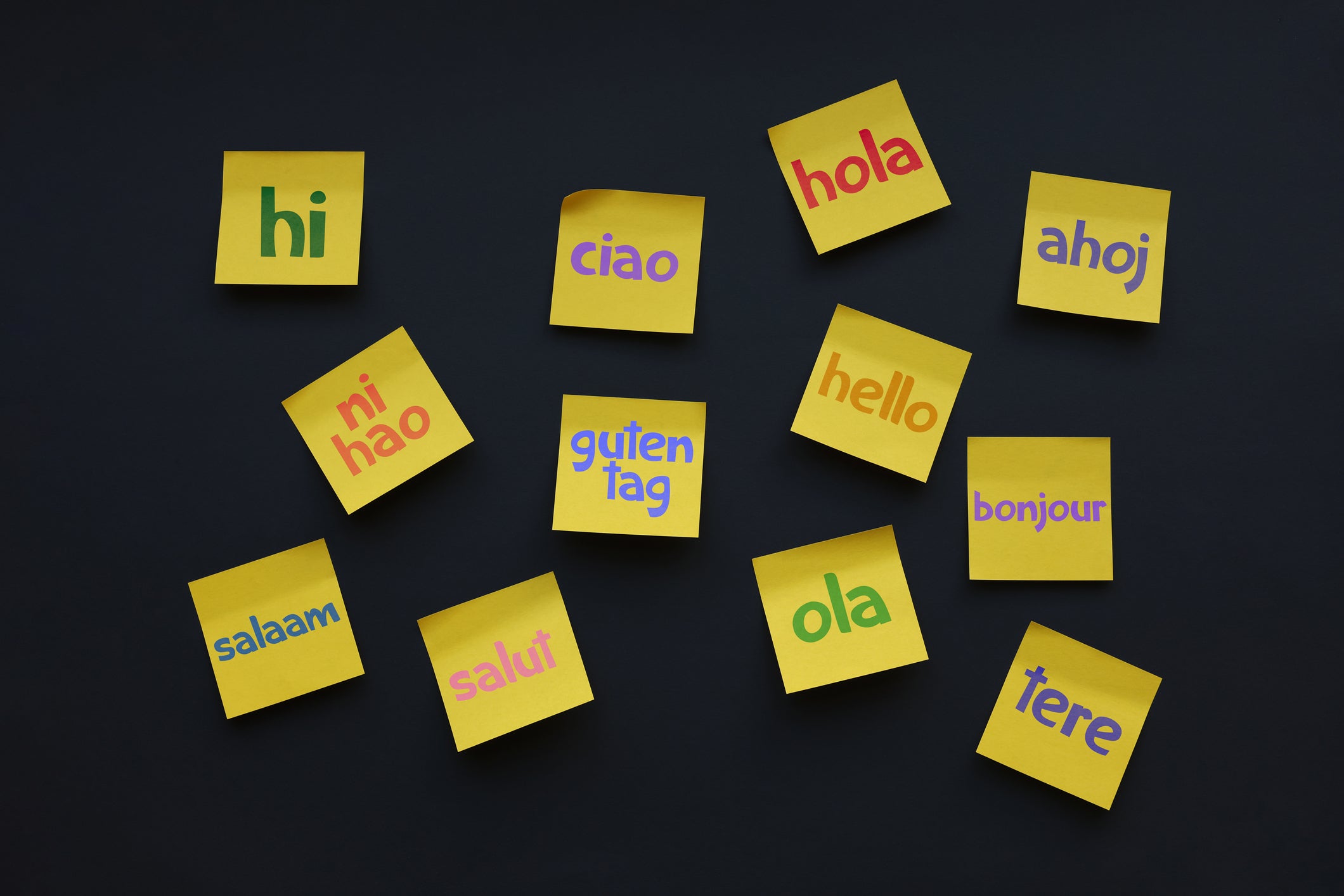Holidays to the homeland could help children hold onto their family’s original language
So how can children use and keep their heritage language? Here’s what researchers found

Your support helps us to tell the story
From reproductive rights to climate change to Big Tech, The Independent is on the ground when the story is developing. Whether it's investigating the financials of Elon Musk's pro-Trump PAC or producing our latest documentary, 'The A Word', which shines a light on the American women fighting for reproductive rights, we know how important it is to parse out the facts from the messaging.
At such a critical moment in US history, we need reporters on the ground. Your donation allows us to keep sending journalists to speak to both sides of the story.
The Independent is trusted by Americans across the entire political spectrum. And unlike many other quality news outlets, we choose not to lock Americans out of our reporting and analysis with paywalls. We believe quality journalism should be available to everyone, paid for by those who can afford it.
Your support makes all the difference.There are 67.3 million people in the United States who are bilingual or multilingual, according to a 2019 report from the Center for Immigration Studies.
For many people who migrate to different countries, keeping their mother tongue is extremely important and passing it down to their children could come with many degrees of success.
Moving to a different country means languages come under pressure from the dominant language in a country as well as the lack of opportunities to practice and fluent speakers to practice with.
So how can children use and keep their heritage language?
“The role of parental language use in the country of residence is well-established,” said Prof Vicky Chondrogianni of the University of Edinburgh and Dr Evangelia Daskalaki of the University of Alberta, authors of the study in Frontiers in Language Science.
“Here we show how the opportunities to use the heritage language outside the home, and specifically in the country of origin, can help with language maintenance,” the study authors added.
To explore this, researchers recruited 58 children living in the US and Canada, who were bilingual in Greek and English.
The children were then divided into three groups, which were the children of first-generation immigrants, the children of second-generation immigrants, and children who had one parent who was a first-generation immigrant and one who was a second-generation immigrant.
All of the children who attended went to mainstream school in English and took additional classes in Greek.
To understand the children’s background on bilingualism, researchers interviewed each child’s parents. They asked when the children were exposed to Greek and English, how much Greek was spoken at home, and how often they visited Greece or were visited by relatives.
All the children had first been exposed to Greek from an early age and later exposed to English which was largely down to mainstream schooling.
The team found that early exposure to a heritage language and late exposure to the dominant language is linked to more complete acquisition of the heritage language, as is heritage language ‘richness’: exposure to more and different sources of the language.
During the tests, researchers looked at different aspects of the children’s language skills.
Children were asked to name objects in pictures, which tested their vocabulary, and to describe events taking place in different pictures.
This second test had been arranged so that the correct responses required a specific grammatical structure.
The results
The results revealed that children of first-generation parents, and the children who had one first- and one second-generation parent, performed similarly on all the tests.
However, there was a major gap between their performance and that of the children of second-generation parents, who were much less accurate.
Speaking to language at home significantly improved the children’s outcomes in general, but when the children visited Greece, there were exposed to a greater variety of contexts and speakers — which supported particularly vulnerable aspects of language use, such as vocabulary.
Visiting their home country also helped with the correct reproduction of grammatical structures in a sentence.
Exposure to the heritage language was linked to more accurate use of the language.
Researchers also found that the children of second-generation parents used Greek less, had a less rich exposure to the language, and visited Greece less frequently.
“It is not just about using the heritage language at home,” said Chondrogianni. “It is also about the opportunities a child has to use their heritage language in different registers, contexts, and with a variety of speakers.”
“Of course, visits to or visits from the country of origin might not be an option for every family,” added Daskalaki.
“There are various financial and practical difficulties, and depending on the community, there may be geographical or even political barriers. Policymakers and community members need to think, creatively and collaboratively, how they can re-create this immersive experience in the country of residence.”



Join our commenting forum
Join thought-provoking conversations, follow other Independent readers and see their replies
Comments